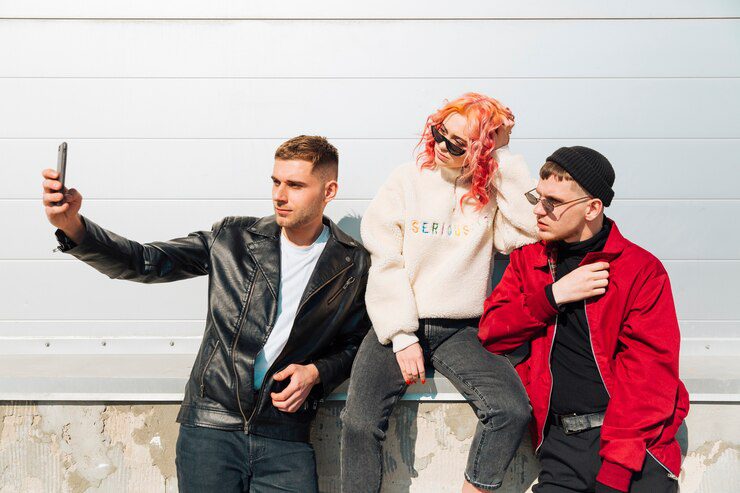Remember the days when the coolest trends trickled down from MTV and glossy magazines? Those days are as retro as flip phones. Today, the influence of social media on pop culture trends is undeniable. It’s a digital wildfire, igniting fads faster than you can say “challenge accepted.”
From Hashtag Heroes to Viral Hits: How Social Media Shapes Pop Culture
Gone are the gatekeepers of cool. Social media has democratized trendsetting, allowing anyone with a smartphone and a creative spark to become a cultural influencer. Here’s how these platforms are reshaping pop culture:
Viral Sensations: Platforms like TikTok are breeding grounds for trends. A catchy dance routine, a hilarious skit, or a life hack filmed in your bathroom – anything can go viral in a matter of hours, reaching millions and propelling unknown creators into the limelight. Remember the #DalgonaCoffee craze of 2020? Thank TikTok.
The Rise of the Micro-Influencer: Forget Hollywood A-listers. Everyday people with dedicated followings (think niche fashion bloggers or beauty gurus) are the new trendsetters. Their authenticity and relatable content resonates with audiences, making them trusted sources for product recommendations and trend spotting.
The Power of the “Like” Social media thrives on engagement, and content creators understand this. Platforms like Instagram have become a giant mood board, showcasing curated aesthetics and lifestyles. Users hit the like button on outfits, makeup looks, or travel destinations, essentially voting for what’s considered trendy.
The Numbers Don’t Lie: Social Media’s Impact by the Stats
The influence of social media on pop culture is backed by data:
A 2023 survey by the Pew Research Center revealed that nearly 70% of American teens get their news from social media platforms. This extends to pop culture trends as well.
Influencer marketing is a booming industry. According to a 2024 study by Influencer Marketing Hub, the global market is expected to reach a staggering $16.4 billion this year.
Social Media: A Double-Edged Scroll for Pop Culture
The influence of social media isn’t without its downsides. Here’s a look at the flip side:
The Echo Chamber Effect: Social media algorithms tend to show users content they already engage with, creating echo chambers where certain trends are amplified while others are drowned out. This can lead to a homogenization of pop culture.
The Pressure to Be Perfect: Platforms like Instagram are notorious for portraying unrealistic beauty standards and lifestyles. This can create a sense of inadequacy and pressure to conform to these manufactured trends.
Fleeting Fame: The viral nature of social media means trends come and go in a flash. The attention span of online audiences is short, leaving creators constantly chasing the next big thing.
The Future of Pop Culture: A Collaborative Canvas
Despite its drawbacks, the influence of social media on pop culture has democratized the landscape. It’s a space for discovery, connection, and creativity. Here’s what the future might hold:
The Rise of Niche Communities: Social media allows people with specific interests to find each other and create their own trends. Think K-Pop fandoms or niche fashion subcultures.
The Power of Social Commentary: Social media is no longer just about cat videos. Platforms like Twitter can be powerful tools for sparking conversations about social issues and influencing cultural narratives with news & current events.
A Collaborative Playground: The lines between creator and consumer are blurring. Social media allows users to actively participate in shaping trends, hacking them with their own creative interpretations.
So, is social media a dictator or a discoverer of pop culture trends? The answer is both. It’s a powerful tool that can be used for good or for promoting fleeting fads. The key lies in critical consumption and using these platforms to create a more diverse and inclusive pop culture landscape.
The next time you scroll through your social media feed, take a moment to reflect on the trends you see. Do you genuinely enjoy them, or are you simply following the crowd? Remember, social media can be a springboard for creativity, not just a mindless scroll. So, use your voice and contribute to the conversation. After all, pop culture is what we, the scrollers and the sharers, make it.







